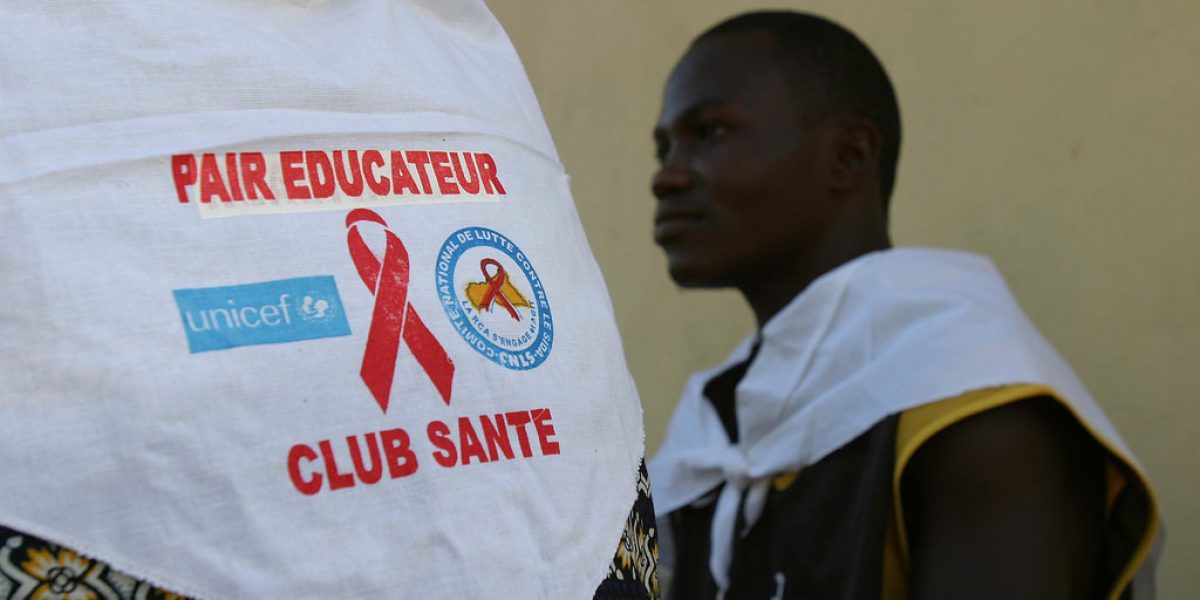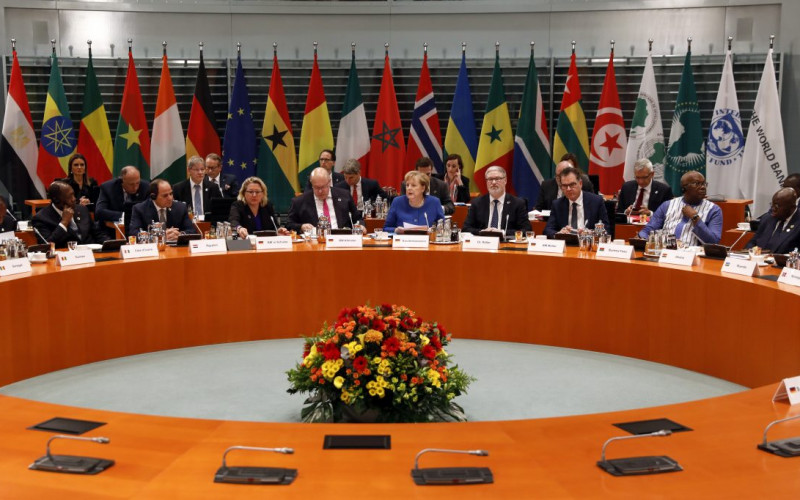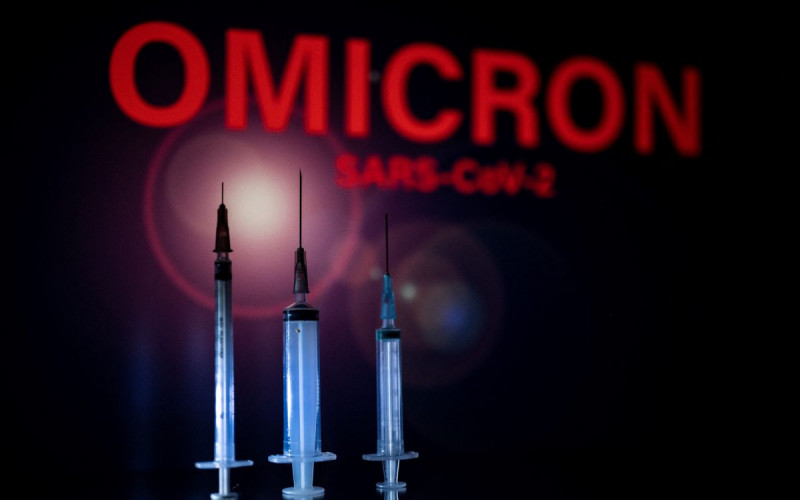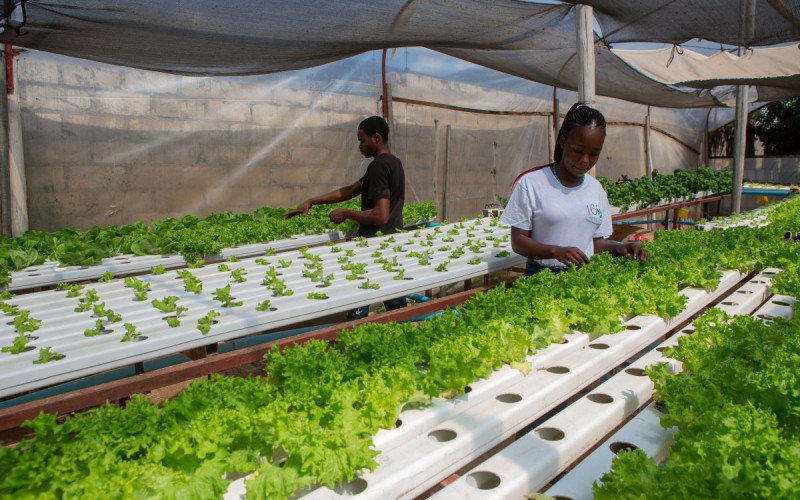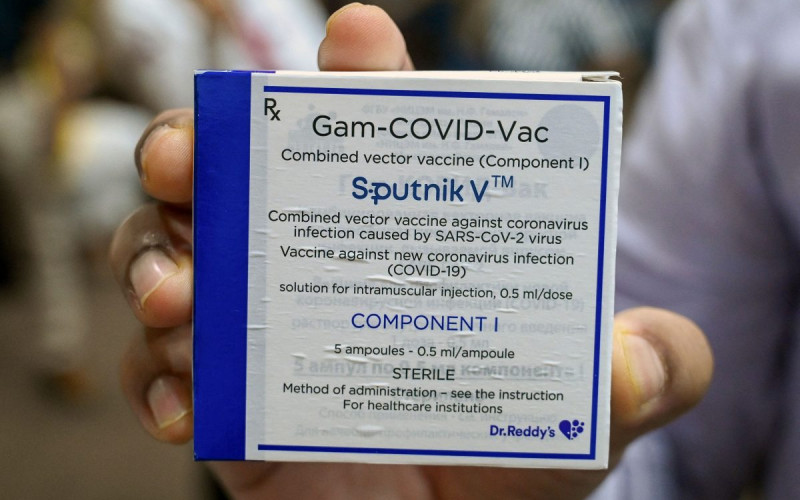Just more than a month ago in the ballroom of Gaborone’s International Convention Centre, Cynthia Leshomo was crowned Botswana’s newest beauty queen. After competing against 11 other contestants, Leshomo sauntered along the catwalk, beaming in the bright lights and camera flashes, and proudly slipped into the sash proclaiming her new title: Miss HIV Stigma-Free 2005.
All contestants in this pageant are HIV-positive, and they’re judged not only for their beauty but also as AIDS activists within their community. But it wasn’t always this way. When Leshomo first learned she was HIV-positive five years ago, she was terrified.
‘I was one of the people who was stigmatising other people living with HIV/AIDS because I thought young and beautiful as I was, I could not get infected. What was more, I was not of the class to be infected,’ said the 32-year-old business school graduate. ‘I thought I was the black sheep in the family; I thought I was cursed. I was totally in denial; I was just thinking of death.’
Facing reality
Leshomo’s shame was so profound that she attempted suicide, swallowing a bottle of the anti-retroviral medicines that had been prescribed to prolong her life. She slipped into a coma that lasted for two days, but awoke with a new commitment to fight the disgrace thrust upon those with the virus.
‘That’s why I went public with my status – to tell the whole nation, “Look here, we’re living with HIV and AIDS,”‘ she said.
Botswana has one of the highest HIV prevalence rates in the world, with nearly two in five adults living with the disease. Average life expectancy has fallen to just over 30 years, and evidence of the pandemic is everywhere. Billboards are emblazoned with images of red ribbons encouraging the public to learn their HIV status. Condoms are free in many public bathrooms. At every level of society, individuals once perfectly healthy are wasting away while pretending nothing is wrong.
The international community has praised Botswana’s response to the HIV/AIDS pandemic. This nation of 1.7 million people was the first in sub-Saharan Africa to provide a free, universal anti-retroviral drug programme, which has won significant international funding and attention.
Although Botswana is one of Africa’s richest countries with a massive revenue surplus, thanks to its mineral wealth, it has learned the hard way that stigma – not simply a lack of resources – remains a leading obstacle to HIV/AIDS prevention and treatment programmes. Silence about HIV and AIDS remains widespread. Discrimination against those living with HIV – or those suspected of carrying the virus – continues to divide families and communities.
The Miss HIV Stigma-Free pageant is one of many efforts to eradicate the stigma. Four years ago Botswana’s largest company, The Debswana Diamond Company (a joint venture between De Beers and the government), became the first organisation in the country to provide free HIV testing and anti-retroviral drugs, after discovering that AIDS had surpassed accidents as the main cause of death among employees.
The company knows that at least 1,300 out of more than 6,000 employees are HIV-positive. But only 410 take advantage of the treatment programme that is on offer.
‘We just assumed that with such a [free medical] service that we’d be overwhelmed. But it didn’t happen,’ said Dr Onalethata Johnson, who coordinates the company’s HIV/AIDS response. ‘We have this money sitting there and it’s not really being optimally utilised.’
Debswana contributes 3.1% of all workers’ salaries to its HIV treatment fund. But Johnson said that presently about $7 million is waiting to be spent.
That financial arsenal ought to allow the company to make a significant impact on the disease. But before treatment can begin, employees must be willing to learn their status. That is where fear and stigma block progress. Although the company has a policy not to discriminate against infected employees, Johnson said many employees don’t trust their employers to stick by this resolution and fear that participating in a testing programme may mean the end of their job.
‘People feel that, “Well, what’s in it for me, to know my HIV status? Except that I will be discriminated against,”‘ she said.
The sting of the stigma
Johnson said many employees who know their status don’t disclose to others for fear of being ridiculed and ostracised by co-workers, friends and family.
‘In this part of the world, the main mode of transmission is through sexual activity, and sexual activities are really taboo to talk about,’ Johnson said.
Cultural proscriptions against sexual discourse are not limited to southern Africa. But some experts say the widespread associations between AIDS and sex limits conversations about the complex factors that make some men and women more vulnerable to HIV transmission – including poverty, access to condoms and the inability to negotiate contraception within sexual relationships.
‘It’s a very sensitive topic because it’s about sex,’ said Richard Delate, spokesperson for UNAIDS in Johannesburg. ‘So immediately when you talk about sex and HIV/AIDS, you also have to go back to the early days of conversations about AIDS, when it was associated with promiscuity. A lot of those connotations are still there.’
A key factor in the persistence of stigma is people’s reluctance to publicly declare their HIV status, he said.
‘We can easily say that there are millions of people with HIV, yet it’s still very difficult to find someone to say they’re living with HIV/AIDS,’ Delate said.
Delate pointed to a recent report from South Africa, where more than one in five adults, or about 5.3 million people, are living with HIV. Last month, Stats SA, South Africa’s official statistics agency, said more than 200,000 South Africans aged 20 to 45 died in 2002, more than double the number in 1997. Yet HIV remains largely invisible on the nation’s death certificates, as families of the deceased often ask that the death certificates list the names of infections associated with HIV, such as tuberculosis or pneumonia.
‘This is a problem of people acknowledging that [their family members] died of HIV/AIDS,’ Delate said. ‘We need to challenge people to be open about their status.’
But coming forward with one’s status is not so simple.
‘Silence about HIV/AIDS is about security,’ said Mathula Lusinga, a 29-year-old Zimbabwean living in Johannesburg. ‘If you’re sick, you need to keep your job, you need to keep your friends. A lot of companies and a lot of people still do not see AIDS as a normal disease, so people feel that the security of those things will be taken away by disclosing it to people.’
This is what happened to Kesego Basha-Mupeli, founder and director of the Centre for Youth and Hope AIDS, a local support group. Three years ago, she worked as a store clerk and disclosed her status to her supervisor.
Her boss told others about her status, and a week later, her job was eliminated. That year, Basha-Mepeli organised the first Miss HIV Stigma-Free pageant.
By celebrating the beauty of the contestants and the positive contributions they make to treatment in their communities, Basha-Mepeli hopes the pageant will wipe out the shame associated with the disease and encourage people to get tested for the virus.
Educating the community
In her fight against stigma, Basha-Mepeli has a growing list of allies. The Urban Youth Project, a Botswana government initiative, the UN Foundation and UNAIDS all target young people most at risk of contracting the virus, including street children, orphans, young commercial sex workers and unemployed youth. Counselling and testing centres are widespread and the Botswana Network of AIDS Service Organisations funds small initiatives that respond to stigma at a community level.
Botswana’s political leadership has publicly addressed the HIV/AIDS stigma. President Festus Mogae, who himself has tested HIV-negative, has encouraged others to seek voluntary testing and has often stated that those not infected by the virus are still affected by it. Botswana’s Minister of Health Lesego Motsumi has declared that initial prejudice against those living with HIV has already resulted in ‘devastating negative consequences’ by adding to stigma, inducing fear and curtailing standard diagnostic practice. Many ministers and members of parliament also bring up HIV/AIDS when addressing their constituencies and the public.
Yet the complex social and cultural values that lead to avoidance of HIV testing and treatment remain difficult to defeat.
‘Stigma around disease is not particular to Africa or HIV/AIDS. It’s something that exists in all cultures,’ said Brad Ryder, spokesperson for the African Comprehensive HIV/AIDS Partnerships, a public-private partnership between the Bill and Melinda Gates Foundation, US pharmaceuticals group Merck and the Botswana government. In 2000, the Gates foundation and Merck each contributed $50 million to a fund for HIV/AIDS treatment and prevention, and Merck contributes select medications for treatment. But to date, Ryder said just over half of the fund’s $100 million has been allocated.
‘We are a little behind schedule,’ said Ryder. ‘We would have thought it would be done by now. But when working with local programmes, you can’t just come in as a donor and throw money at the programmes.’
Stigma about HIV/AIDS has also delayed the anticipated progress, Ryder said, adding that the reasons for stigma go beyond the taboo nature of HIV transmission.
‘HIV/AIDS was traditionally seen as a death sentence,’ Ryder said. ‘There was no known treatment. Until people became aware of what treatment was and how it could help them to prolong their lives, people didn’t come forward.’
When Botswana rolled out its publicly-funded anti-retroviral treatment programme three years ago, an estimated 110,000 people were in immediate need of drug treatment. Initially, many were reluctant to take advantage of the free services. But in 2003, the government introduced routine HIV testing throughout the health care system.
Breaking the silence
By December of last year, Ryder said 32,000 patients were enrolled in the national programme, known as Masa, while another 7,000 receive drugs through privately-funded schemes. While this is only a fraction of those who need treatment, he said widespread treatment is crucial in the battle to end the shame surrounding HIV.
‘Now I think we’re seeing a great change,’ Ryder said. ‘As people see their friends, their relatives, their neighbours essentially taken back from their death beds as a result of ARV therapy, we see now a greater number of people coming forward for testing and seeking treatment for HIV/AIDS.’
Such a climate is what makes the Miss HIV Stigma-Free pageant possible. This year, the catered gala drew an audience of 500. On stage, each of the glamorous and healthy contestants had a chance to proclaim why she refused to be ashamed of her status.
‘I have broken the silence. I have done what I could do to destigmatise AIDS,’ said the outgoing Miss HIV Stigma-Free, 33-year-old Kgalalelo Ntsepe. Addressing the winner, she said: ‘You will be subjected to prejudice. Be brave; be passionate. No one is more ignorant than the man or woman who doesn’t know his or her status.’

